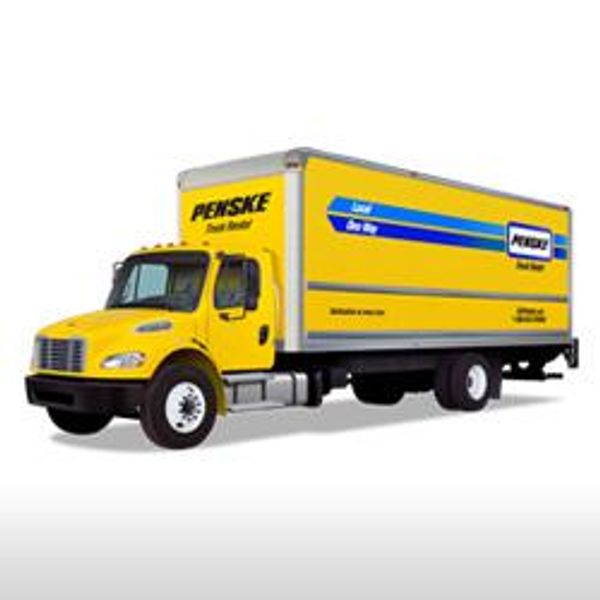
Box trucks can last between 10 to 20 years with proper maintenance and care. Regular maintenance and repairs can help extend the lifespan of a box truck significantly.
Box trucks are a popular choice for businesses and individuals due to their versatility and storage capabilities. The longevity of a box truck depends on various factors such as maintenance, usage, and driving conditions. With regular maintenance and care, box trucks can remain reliable for a considerable amount of time.
Understanding the factors that affect the lifespan of a box truck can help individuals and businesses make informed decisions when purchasing or maintaining these vehicles. Additionally, implementing a proactive maintenance schedule and addressing any issues promptly can contribute to extending the life of a box truck. Therefore, it is essential for owners to prioritize regular inspections and maintenance to maximize the longevity of their box trucks.
Navigate As You Want:
Factors Affecting Lifetime Of Box Trucks
Box trucks can last a long time depending on several factors.
Usage and maintenance play a crucial role in determining the longevity of box trucks. Regular maintenance, inspection of key components, and timely repairs can extend the lifespan of these vehicles. Using box trucks within their payload limits and avoiding overloading is also important.
The quality of materials used in the construction of box trucks is another influential factor. Durable materials can withstand the rigors of daily usage and prevent premature wear and tear.
Driving conditions, such as terrain, climate, and driving habits, can also impact a box truck’s lifespan. Frequent exposure to unfavorable weather conditions or rough terrains can accelerate wear on parts and reduce overall durability.
By considering these factors, businesses can ensure their box trucks last for many years, maximizing their investment and saving costs in the long run.
Importance Of Regular Maintenance
Regular maintenance is critical for ensuring the longevity of box trucks. Routine inspections for wear and tear allow for early detection of issues, preventing major breakdowns. Fluid checks and changes, including oil, coolant, and transmission fluid, are essential for optimal performance. Keeping a close eye on tire maintenance, such as regular rotations and pressure checks, can extend the lifespan of the tires and improve overall safety on the road.
Signs Of Aging Box Trucks
Box trucks can last for about 10-15 years if well-maintained and used for regular deliveries. However, signs of aging in box trucks can lead to decreased performance, increased repair costs, and physical wear and tear. Decreased performance might include engine issues, transmission problems, and lower fuel efficiency.
Increased repair costs can arise from frequent breakdowns, replacement of worn-out parts, and the need for major overhauls. Physical wear and tear is evident in rust, dents, and worn-out components. Regular maintenance and timely repairs can extend a box truck’s lifespan.

Credit: www.pensketruckrental.com
Extending The Lifespan Of Box Trucks
Extending the Lifespan of Box Trucks:
Proper loading and unloading techniques play a crucial role in enhancing the longevity of box trucks. Ensuring that the weight is evenly distributed and properly secured minimizes the strain on the vehicle and prevents damage. Safe driving practices also contribute significantly to extending the lifespan of box trucks. Adhering to speed limits, avoiding aggressive driving, and maintaining a safe distance from other vehicles can reduce wear and tear. Additionally, using protective measures such as installing protective liners and bumpers can help prevent scratches and dents during loading and unloading. Regular maintenance, including inspections and servicing, is equally important to identify and address any issues promptly. By following these guidelines, box truck owners can maximize the lifespan of their vehicles and ensure efficient and reliable transportation.
Box Trucks Vs. Other Commercial Vehicles
Box trucks are known for their durability and longevity, often outlasting other commercial vehicles in their class. These trucks are built to withstand the demands of frequent transportation and heavy loads. With proper maintenance and care, a box truck can last up to 20 years or more, making them a reliable choice for businesses.
Comparatively, box trucks have several advantages over other commercial vehicles. They offer a spacious and enclosed cargo area, providing protection from the elements and enhanced security. The box shape also allows for easier loading and unloading, optimizing efficiency and reducing the risk of damage to the cargo.
However, it is important to consider the disadvantages of box trucks as well. They can be more expensive to purchase compared to other commercial vehicles, and their larger size may limit maneuverability in narrow spaces. Additionally, the enclosed nature of the box can lead to temperature fluctuations, requiring additional measures to regulate the climate of the cargo area.
In conclusion, box trucks have a remarkable lifespan and offer unique advantages for businesses in need of reliable transportation. Consider your specific needs and weigh the advantages and disadvantages before making a decision.

Credit: www.primedesign.net

Credit: www.onerail.com
Frequently Asked Questions For How Long Do Box Trucks Last
How Long Do Box Trucks Last On Average?
Box trucks can last anywhere between 10 to 20 years depending on various factors such as maintenance, usage, and driving conditions. Regular inspections and prompt repairs can significantly extend the lifespan of a box truck. Investing in high-quality parts and following recommended service intervals can also contribute to its longevity.
What Factors Affect The Lifespan Of A Box Truck?
Several factors can impact the lifespan of box trucks. These include the frequency of maintenance, the type of terrain and weather conditions they operate in, the load capacity, driver behavior, and even the quality of the materials used in manufacturing.
Proper care and maintenance can help mitigate some of these factors and extend the truck’s lifespan.
How Can I Increase The Lifespan Of My Box Truck?
To maximize the lifespan of your box truck, ensure regular and proper maintenance. This includes regular oil changes, tire rotations, and inspections of the brakes, engine, and suspension components. Additionally, practicing safe driving habits, avoiding overloading the truck, and parking it in a covered area when not in use can help protect it from environmental damage and premature wear and tear.
Is It Worth Buying A Used Box Truck?
Buying a used box truck can be a cost-effective option, especially if you find one in good condition and with relatively low mileage. However, it is crucial to thoroughly inspect the vehicle, check its maintenance records, and have a mechanic evaluate its overall condition before making a purchasing decision.
Additionally, compare the cost of repairs and maintenance with the potential savings to ensure it is worth it in the long run.
Conclusion
Box trucks are a reliable and durable choice for businesses in need of transportation. With proper maintenance and care, these versatile vehicles can last for many years. Regular inspections, servicing, and addressing any issues promptly can significantly extend the lifespan of box trucks.
Whether used for deliveries or as mobile workshops, their robust construction and reliable engines ensure longevity. Investing in quality box trucks and maintaining them properly will ensure smooth operations and cost savings in the long run. Choose durability and longevity with box trucks, a worthy investment for any business.



